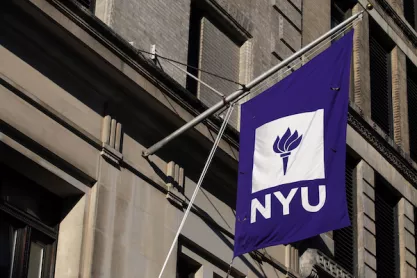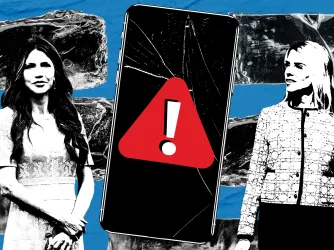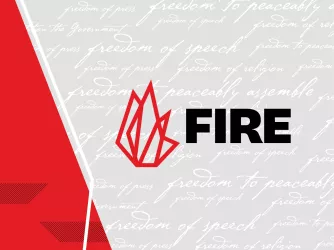Table of Contents
Media censorship in Israel, Tiananmen memorials criminalized, and the perils of criticizing the powerful

WATCH VIDEO: The Perils of Criticizing the Powerful
This year, FIRE launched the Free Speech Dispatch, a regular series covering new and continuing censorship trends and challenges around the world. Our goal is to help readers better understand the global context of free expression. The previous entry covered the global implications of online censorship in Hong Kong and Australia, Thailand’s lèse-majesté law, and a flurry of blasphemy cases. In this entry, we’ll look at media censorship in Israel, the legacy of Tiananmen today, and some updates on issues discussed last time.
Want to make sure you don’t miss an update? Sign up for our newsletter.
Israel’s continuing censorship of speech about Gaza
Suppression of speech about Israel and Gaza has been a hallmark of the past eight months, and that trend shows no signs of stopping.
On May 21, officials from Israel’s Communications Ministry seized broadcasting equipment and a camera from an Associated Press location in southern Israel, alleging that AP was providing images to Al Jazeera. Weeks earlier, Israeli police raided Al Jazeera’s offices, and officials ordered that the station be taken off the air in the country. Before the seizure, authorities unsuccessfully warned AP to end its livestream of Gaza, which had “generally shown smoke rising over the territory.”

Israel’s communications minister Shlomo Karhi quickly ordered the return of AP’s equipment, but broader media censorship concerns are still widespread. The Israeli Military Censor conducts pre-publication reviews of journalism covering security issues and has the power to redact material deemed damaging to state security. In 2023, the censor fully barred 613 articles from publication and redacted material from 2,703 articles, reportedly the highest figures in a decade.
And it’s not only journalists and media outlets experiencing censorship — social media users face trouble, too. Late last month, police zip-tied and blindfolded a cosmetics shop owner and then placed her on house arrest for five days over social media posts “against the IDF’s soldiers and the Israeli government that could disrupt public order.”
Israel’s state attorney’s office expressed concerns about the woman’s treatment, questioning the use of blindfolds and zip ties and suggesting police failed to follow proper procedures when detaining her.
Hong Kong’s extraterritorial censorship
In last month’s edition, I covered a Hong Kong court’s decision to grant a government request to ban the protest anthem “Glory to Hong Kong” and YouTube’s speedy compliance within the city, suggesting that the next major test would be what this ruling meant for internet speech outside Hong Kong. It didn’t take long to find out.
Global media distributor EmuBands, which is based in the United Kingdom, not Hong Kong, responded to the order by removing the song everywhere on its streaming partners, including Apple Music and Spotify. As predicted, a court order that only governs Hong Kong is now limiting what people can see and hear on a global scale. DGX Music, which wrote the protest anthem, objected to EmuBands’ decision and asked for the song’s reinstatement.
Last week, dozens of human rights groups wrote to EmuBands to warn that the company’s actions are “based on a flawed understanding of a court order in Hong Kong” that “certainly does not apply extraterritorially.” Stay tuned to see if more dominoes fall because of this ruling.
‘Seditious’ Tiananmen memorials
As is typical of developments in Hong Kong of late, there is more alarming news to cover.
Readers are likely aware of the extent to which the Chinese government has long censored information about the Tiananmen protests and massacre that took place on June 4, 1989, but they may not realize that censorship has worsened in recent years.

(If you’d like to learn more about Tiananmen, FIRE released a moving video last week about the anniversary with protest leader Zhou Fengsuo.)
Until recently, June 4 was widely commemorated in Hong Kong, but memorials are increasingly criminalized as the city rapidly loses its freedoms. Ahead of the anniversary, Hong Kong police conducted a string of arrests under the city’s new national security law over “seditious” social media posts referencing an “upcoming sensitive date” — meaning June 4 — to “endanger national security” and “incite hatred” against the government.
More arrests, searches, and detentions occurred on and just before the day itself. They targeted individuals including a performance artist motioning “8964” with his hands, a man showing posters about the region’s protest movements, an elderly activist who shouted “people will not forget,” a woman “carrying a book about the national security law,” and people using their phone’s flashlight function or displaying candles on the screen.
In its latest edition, the city’s Christian Times newspaper, which has historically published material about the Tiananmen anniversary, printed a blank front page.
Censorship intensifies at NYU’s Abu Dhabi campus
A report from New York University’s independent student paper, Washington Square News, alleges a troubling wave of censorship and surveillance at the university’s Abu Dhabi campus. New commencement regulations ban students from wearing symbols and scarves, “with one Ph.D. student allegedly detained for a week and deported after pulling out a keffiyeh at the event.”

As FIRE has regularly documented for years, there is a gulf — sometimes a wide one — between what speech protections American universities promise at their overseas campuses, and what they can actually deliver based on local law. NYU Abu Dhabi has faced these allegations before. (Though American universities have often done a poor job respecting the right to engage in speech and Israel and Gaza at their campuses in the U.S., too.)
But the concerns about free expression and academic freedom at NYU Abu Dhabi extend far beyond the commencement ceremony. NYU’s American Association of University Professors chapter says it’s received reports of “government interrogations of students and faculty regarding their involvement in pro-Palestinian demonstrations on campus” and “search requests from government officials regarding ‘suspicious activity,’ including private social media posts, group affiliations and personal emails.”
Punished for upsetting the powerful
A common theme of censorship is that those in power especially loathe one kind of speech in particular: criticism or mockery aimed at them.
A string of recent arrests and prosecutions around the world demonstrate how often this form of speech is threatened:
- Iran International reports that translator and editor Hossein Shanbehzadeh was detained after replying to a tweet from Supreme Leader Ali Khamenei with a simple “.” — which apparently received “considerably more likes than Khamenei’s original tweet” — though it’s possible Shanbehzadeh’s arrest related to other speech.
- In Tunisia, two journalists were sentenced to a year in prison on “fake news” charges for their commentary and social media posts about Tunisian President Kaïs Saied. “I am neither for nor against the president. Sometimes I support his choices, sometimes I criticize them. It’s part of my job,” one of the journalists said. According to Tunisia’s National Journalists Syndicate, 39 journalists have been prosecuted this year on similar charges.
- A Human Rights Watch report from late May warned of a growing list of prosecutions and arrests in Uzbekistan for “insulting the president online.” In a recent conviction, one man was sentenced to five years in prison in part for a post calling President Shavkat Mirziyoyev a “traitor” who went to Moscow’s Victory Day parade to get a “white blessing” for his “lifetime rule.”
- Retaliation against critics of Russia’s invasion of Ukraine continues. A Moscow court fined a TV presenter 50,000-rubles for Instagram posts including one that read, “No to war,” and another that requested for Russia to “reach those compromises that would stop the killing of people.” And a Higher School of Economics student and member of Youth Parliament received a 15-day jail sentence and similar fine for “discrediting the Russian army” on Telegram, as well as posting pro-LGBT material.
But wait! There’s some good news, too
Good news is rare on this front, but it can still happen. Automattic, which owns WordPress, Tumblr, and other programs, has succeeded nearly a decade after it first began to fight against a censorship order from the Turkish government. The order dates back to 2015, and it was leveled against a WordPress-hosted site that contained accusations of corruption directed at President Erdoğan. The Turkish Constitutional Court found the author’s freedom of expression, as well as their right to an effective remedy, had been violated.
“Do not underestimate the significance of this outcome,” Automattic said in a statement about its successful challenge.
“It’s good to see Automattic taking on the impossible task of fighting censorial, authoritarian governments and winning,” Mike Masnick wrote at Techdirt. “It would be nice to see more companies follow suit.”
And in a development that has implications for readers in the United States as well as the rest of the world, Australia’s eSafety commissioner decided on June 5 to abandon efforts to force X, formerly known as Twitter, to globally take down videos of the stabbing of a Sydney bishop.
X geo-blocked the material in Australia in April, but the commissioner argued that because Australians could utilize virtual private networks to evade local restrictions, X needed to ensure no one could see it — which means global censorship. FIRE and the Electronic Frontier Foundation moved to intervene in the case, arguing that Australian courts don’t get to set the rules for everyone after a temporary court order supported the commissioner’s pursuit of a global ban.
Free speech advocates aren’t the only ones who are pleased that the commissioner dropped the campaign — the bishop who was attacked on film was one of the loudest voices opposing efforts to globally censor the clip.
Keep an eye out for the next edition (and hopefully more good news) or subscribe to the newsletter to make sure you don’t miss an update.

Recent Articles
Get the latest free speech news and analysis from FIRE.

FIRE sues Bondi, Noem for censoring Facebook group and app reporting ICE activity

Spain considers banning teens from social media and holding tech executives criminally responsible for ‘hate speech’

Statement on grand jury’s refusal to indict lawmakers over video urging troops to ignore illegal orders


